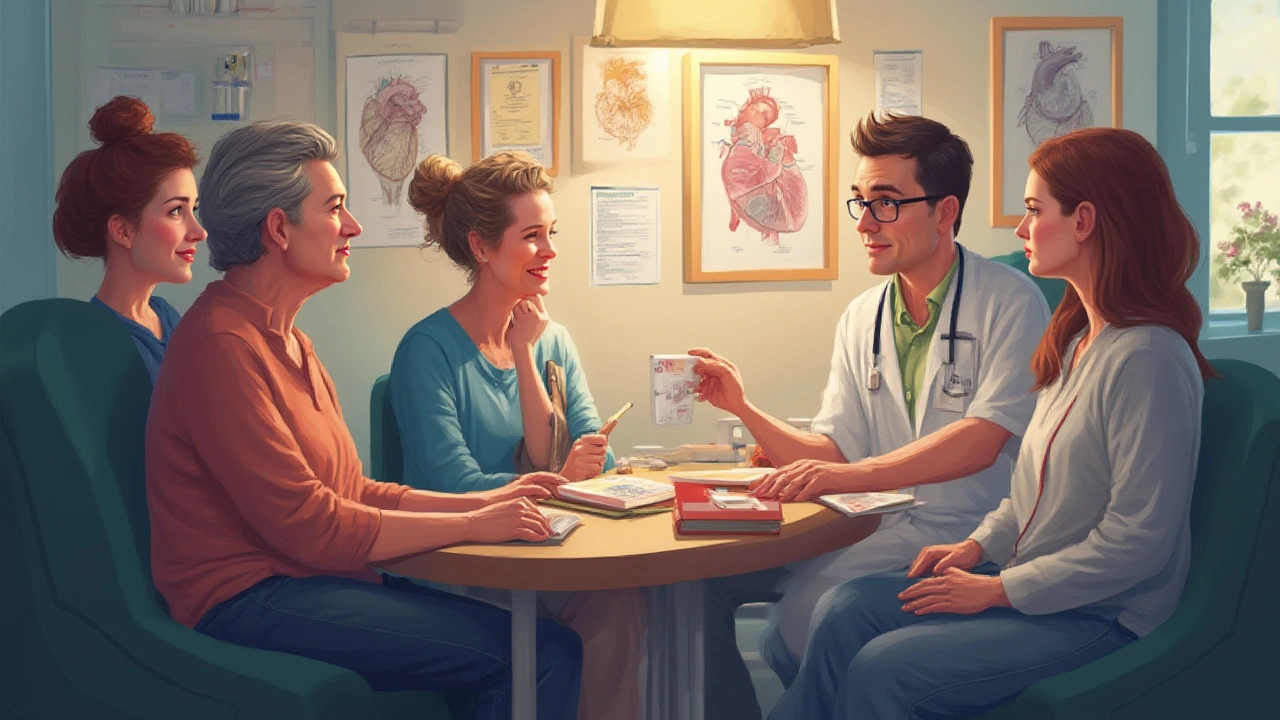Heart arrhythmia: how to spot an irregular heartbeat and act fast
Feeling your heart flip, race, or skip beats can be scary. Sometimes it’s harmless — like after strong coffee or a panic attack — but other times it signals a real problem with the heart’s electrical system. This page gives clear, practical steps: how to recognize arrhythmia, common causes, what tests to expect, and when you need urgent care.
Common signs and what they mean
Watch for these clear signs: palpitations (a fast, fluttering, or pounding feeling), dizziness or lightheadedness, shortness of breath, chest discomfort, and fainting or near-fainting. If the sensation comes and goes, it might be a brief arrhythmia like premature beats. If your heart stays very fast, very slow, or you faint, get help right away.
Different arrhythmias feel different. Atrial fibrillation (AF) often causes an irregular, rapid pulse and may cause tiredness or breathlessness over time. Supraventricular tachycardia (SVT) makes the heart suddenly race. Bradycardia means a slow heart rate and can cause weakness or fainting.
Why arrhythmias happen and simple fixes
Causes range from harmless triggers to heart disease. Common triggers: caffeine, alcohol, smoking, stress, some cold or allergy medicines, and low potassium or magnesium. Medical causes include coronary artery disease, high blood pressure, thyroid problems, sleep apnea, and prior heart attacks.
For minor or occasional palpitations, try cutting back on caffeine and alcohol, stay hydrated, get regular sleep, and manage stress. Vagal maneuvers — like coughing or bearing down — can stop some rapid rhythms, but don’t try them if you feel very unwell.
If symptoms are frequent or troubling, doctors use tests to find the problem: a resting ECG, a 24–48 hour Holter monitor, longer event monitors, an echocardiogram to look at heart structure, and blood tests for thyroid or electrolytes. These tests help match treatment to the problem.
Treatments vary. Some people only need lifestyle changes and monitoring. Others need medicines such as beta-blockers or anti-arrhythmic drugs. For atrial fibrillation, blood thinners may be prescribed to reduce stroke risk. Procedures like electrical cardioversion, catheter ablation, or a pacemaker can fix rhythms that don’t respond to pills.
When should you get emergency care? Go to the ER if you have severe chest pain, sudden shortness of breath, fainting, or a very fast heartbeat that won’t stop. If symptoms are mild but persistent, book a same-week visit with your doctor.
Arrhythmias are common and often treatable. Pay attention to symptoms, remove obvious triggers, and get checked when things feel different. A quick test can usually show whether you need simple lifestyle fixes, medication, or a procedure to protect your heart and keep you feeling safe.

Cordarone: What You Need to Know About Amiodarone Safety and Uses
Jul 4, 2025, Posted by Mike Clayton
Explore Cordarone (amiodarone), its uses, how it treats arrhythmias, possible risks, and what to discuss with your doctor. Stay informed for heart health decisions.
MORESEARCH HERE
Categories
TAGS
- treatment
- online pharmacy
- dietary supplement
- side effects
- medication adherence
- medication safety
- generic drugs
- health
- dietary supplements
- health benefits
- online pharmacy Australia
- adverse drug reactions
- thyroid disorders
- gabapentin
- treatment option
- calcipotriol
- blood pressure
- erectile dysfunction
- closer look
- optimal health
